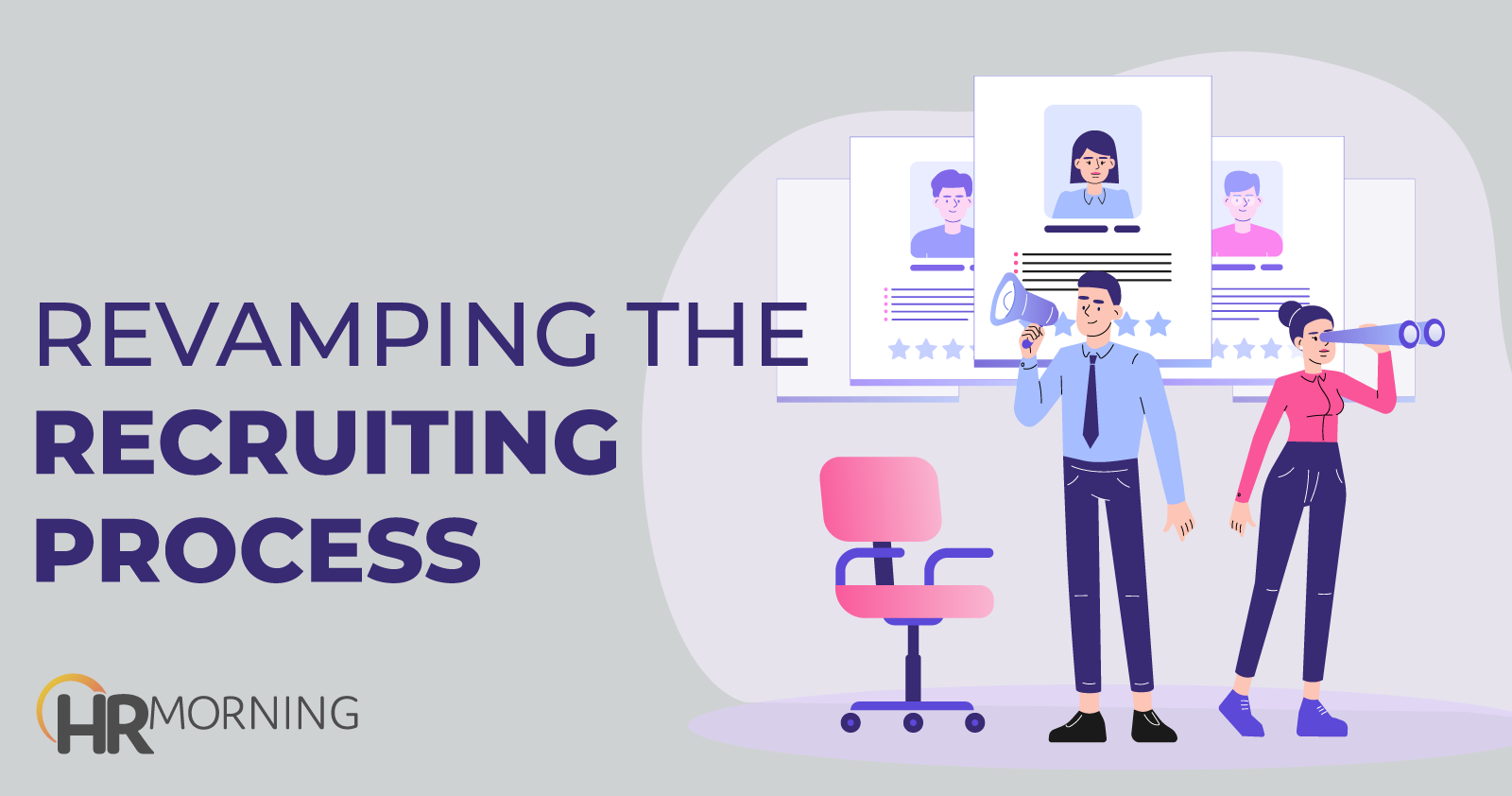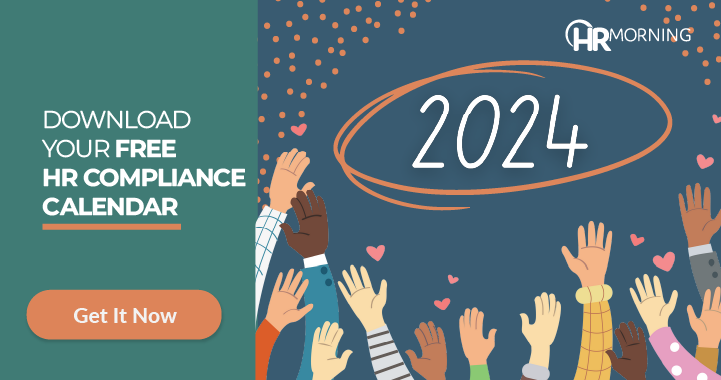Every HR pro knows that hiring is tough right now. And with the pandemic ongoing and employees unwilling to settle for subpar job options, companies need to rethink their hiring strategies to snag the best talent.
The pandemic has resulted in employees reevaluating a lot of things, and many see remote work, flexibility and supportive company culture as nonnegotiable perks.
This means that to have a fighting chance in the current war for talent, employers should consider revamping the way they recruit.
Legal issues
Before getting into the nitty gritty hiring strategies, it’s important to get the basics right and ensure you’re complying with employment laws. Here are some compliance tips courtesy of employment law attorney Robert Ames of the firm Venable LLP.
- Create a standard interview outline. Before the interview, HR pros and hiring managers should think up standard questions that relate to the job description and duties. This can help reduce on-the-spot questions, which could unintentionally violate certain employment laws (some examples include “When did you graduate college?” and “Are you planning on having children?”). The outline also helps ensure all interviews are conducted equally, allowing employers to fairly compare candidates.
- Train all interviewers. It’s important that those who are conducting the interview know which questions can create legal liability, and to avoid those. Other crucial topics to train on include unconscious bias and creating a good candidate experience.
- Fill out standard evaluation forms. Again, this tactic ensures candidates are held to the same standards and compared fairly. Everything written on these forms should be related to the job. Notes on irrelevant character traits, for example, could be considered discrimination if the candidate were to sue.
5 strategies
But successful hiring is so much more than having a good interview system in place.
Here are some additional hiring strategies you’ll want to implement this year, according to recruiting software company Innoflow.
1. Embrace remote recruiting
The pandemic has forever impacted the way we all think about remote work now. What was once a semi-rare benefit is now almost an expectation. Companies that want to compete for the best talent will need to provide at least a part-time remote option — 80% of employees said they’d reject a job offer if remote work wasn’t a possibility. So, if you’re going to have remote employees, you might as well hire them remotely, too.
There are so many benefits to remote recruiting, including:
- access to an unlimited, diverse candidate pool
- speeding up the hiring process, and
- saving money.
By opening up the job to any person working from anywhere, you can truly find the best fit for the job — not just the best fit who lives in a twenty-mile radius.
2. Put effort into the candidate experience
No matter how good your compensation package or how stellar your company’s track record, if a candidate doesn’t get a good vibe during the interview process, it’s all over.
Making a good impression on the candidate during the interview is crucial. Not only is it important to help land the hire you want, but word will get around if candidates aren’t pleased with the hiring process, affecting all future hiring prospects. These days, people aren’t afraid to warn others about bad experiences with companies on social media.
Some easy ways to make a good impression during the hiring process are to be very communicative, be respectful of the candidates’ time, and ask thoughtful questions.
3. Don’t forget about retention
With so much focus on hiring right now, it can be easy to take your current employees for granted. This is resulting in a mass exodus (coined The Great Resignation) of employees looking for greener pastures.
However, it’s so much easier to keep your current employees than to hire new ones — not to mention, cheaper. There’s also always the risk that a new hire won’t be as stellar as they seemed to be in their interview. This is why it’s so essential to check in with your current employees. Make sure they’re doing OK, and give them praise and recognition for getting the job done.
4. Focus on soft skills
Technical skills and flashy resumes can be tempting, but while experience and hard skills can be gained, soft skills are something that employees just have. It’s much harder to teach someone how to work effectively as a team than teach someone how to use your company’s system.
Here are some soft skills predicted to be the most valuable this year and beyond:
- emotional intelligence
- adaptability and resilience
- integrity and ethics
- creativity, and
- teamwork.
So if you’re having trouble filling a job, it’s always worthwhile to ask yourself if certain requirements (like 10 years of experience or a master’s degree) are actually necessary.
5. Tailor your approach
Not all hires are equal, and different generations of workers respond to different things. For example, Gen Z is big on tech, and many prefer to apply to jobs on their smartphones. Young employees also prefer to communicate over text and instant messaging instead of email. Tailoring your process to suit their needs will help expand your reach in the current talent pool.



